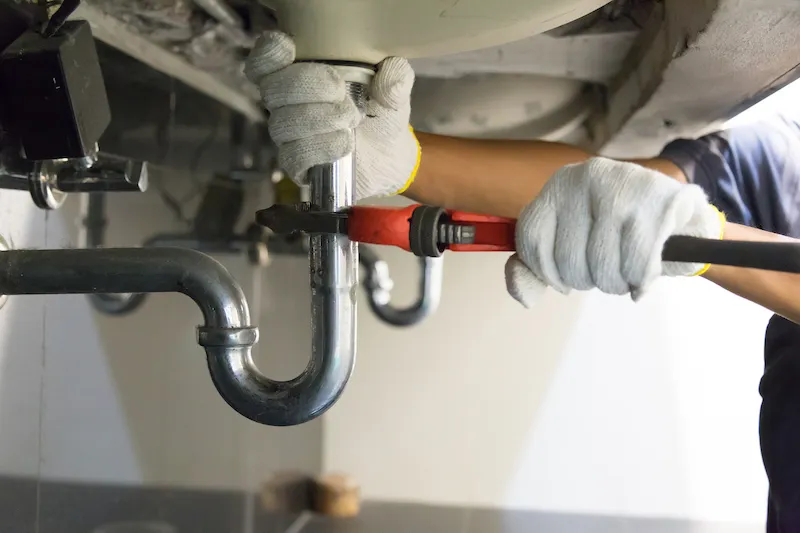Licensed plumbers provide invaluable and necessary services to people throughout Texas. You work hard daily to do your job right and provide quality and dependable services to your customers when you repair or install plumbing systems. However, with any job comes the potential for complaints that may lead to disciplinary action against your license. If you receive notice of a complaint against you, taking steps to defend yourself with the help of a plumber’s license defense lawyer is the best practice.
Complaints and the Texas State Board of Plumbing Examiners
The Texas State Board of Plumbing Examiners (TSBPE) is the state agency that is responsible for licensing and regulating plumbers in Texas. They also handle complaints and enforce violations of the laws and rules that apply to licensed plumbers in the state.
Once the TSBPE receives a complaint, its Enforcement Department assigns a Field Representative to investigate the complaint and contact the complainant for an interview. Following the completion of the investigation, the Enforcement Committee of the TSBPE will review the evidence to determine if there is sufficient proof of a violation.
TSBPE also prioritizes all complaints received according to the criteria in 22 Tex. Admin. Code § 367.14. All complaints are assigned a priority number from one to three, with one being the complaints with the most priority and the three being the complaints with the least priority, as follows:
- Priority 1 – Complaints alleging bodily injury or the imminent threat of harm to the public’s health, safety, or economic welfare, or the environment
- Priority 2 – Complaints alleging the occurrence of economic harm, but not bodily injury, and that do not allege an ongoing condition that poses an imminent threat of harm to the public’s health, safety or economic welfare, or the environment
- Priority 3 – All other matters not classified as Priority 1 or 2, including:
- Unsupervised work by a registrant, with inspection. Complaints alleging work performed by a Plumber’s Apprentice that was performed without requisite supervision but was subjected to and passed an inspection by a Plumbing Inspector,
- Late permit by a licensee. Complaints alleging work performed by a licensee who failed to timely obtain a permit but which was thereafter permitted and inspected by a Plumbing Inspector,
- No proof of violation. Complaints alleging a violation within the Board’s jurisdiction but that fail to allege a factual basis for the alleged violation or otherwise indicate an inability to obtain credible evidence to support the alleged violation, and
- Class B Violations or those that have a lesser potential to jeopardize public health, safety, welfare, property, or the environment.
TSBPE Disciplinary Proceedings
The Enforcement Committee can offer an informal conference to the licensed plumber under 22 Tex. Admin. Code § 367.16, if it would assist the TSBPE in determining:
- whether a violation occurred
- the seriousness of the effect of a violation
- the most appropriate disciplinary action
- whether to offer a settlement agreement, or
- the amount of restitution to be paid by a respondent under §1301.5071 of the Plumbing License Law, instead of, or in addition to other disciplinary actions
If the TSBPE finds that a violation has occurred, disposition of the complaint could include one or more of the following:
- Issuance of a warning in selected circumstances
- Issuance of a cease and desist order
- Finding of voluntary compliance by the plumber
- Issuance of an administrative penalty
- Imposition of a reprimand
- Placement on probation or issuance of a suspension or revocation of an acupuncturist license or certificate of registration
At any point, if a plumber disagrees with the proposed disciplinary action or is unable to reach an agreement on the disposition of the complaint, they can request that the alleged violation be transferred to the State Office of Administrative Hearings (SOAH). An administrative law judge (ALJ) from SOAH then hears evidence from both parties and issues a proposal for decision (PFD) to the TSBPE, which can accept or reject the PFD.
Assessment of Administrative Penalties
22 Tex. Admin. Code § 367.17 sets forth very specific procedures for assessing administrative penalties by the Enforcement Committee of the TSBPE. After the TSBPE issues a Notice of Alleged Violation to the plumber, they have 20 days in which to either settle the matter without a formal hearing and accept the penalty assessed or request a formal hearing before the SOAH on the occurrence of the violation, the amount of the penalty, or both. A failure to respond within 20 days will result in the TSBPE entering a default order.
State law classifies violations by plumbers as Class A or Class B violations. Class A violations can potentially jeopardize public health, safety, welfare, property, or the environment. On the other hand, Class B violations have a lesser potential to jeopardize public health, safety, welfare, property, or the environment.
The recommended administrative penalties for Class A violations range between $2,000 and $5,000, and those for Class B violations range between $1,000 and $2,000. However, the TSBPE can deviate from these recommended amounts as they see fit.
Get Help Defending Your Plumber’s License Today
A disciplinary complaint can significantly affect the business and customer base you have worked so hard to build. Disciplinary action against you may even result in the loss of your license. However, you may avoid these damaging consequences with the right type of defense from the outset of your case. Contact the experienced plumber’s license defense attorneys at Bertolino LLP, so that we can begin investigating your case. You can call our office at (512) 515-9518 or visit us online to get more information about the services we can offer you.
Call or text (512) 476-5757 or complete a Case Evaluation form


